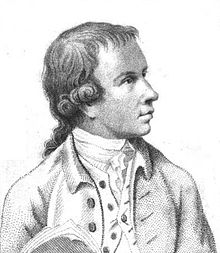
John Milton was an English poet, polemicist, and civil servant. His 1667 epic poem Paradise Lost, written in blank verse and including twelve books, was written in a time of immense religious flux and political upheaval. It addressed the fall of man, including the temptation of Adam and Eve by the fallen angel Satan and God's expulsion of them from the Garden of Eden. Paradise Lost elevated Milton's reputation as one of history's greatest poets. He also served as a civil servant for the Commonwealth of England under its Council of State and later under Oliver Cromwell.

Blind Harry, also known as Harry, Hary or Henry the Minstrel, is renowned as the author of The Actes and Deidis of the Illustre and Vallyeant Campioun Schir William Wallace, more commonly known as The Wallace. This is a lengthy poem recounting the life of William Wallace, the Scottish independence leader, written around 1477, 172 years after Wallace's death.

Thomas Campbell was a Scottish poet. He was a founder and the first President of the Clarence Club and a co-founder of the Literary Association of the Friends of Poland; he was also one of the initiators of a plan to found what became University College London. In 1799 he wrote Pleasures of Hope, a traditional 18th-century didactic poem in heroic couplets. He also produced several patriotic war songs— "Ye Mariners of England", "The Soldier's Dream", "Hohenlinden" and, in 1801, The Battle of the Baltic, but was no less at home in delicate lyrics such as "At Love's Beginning".
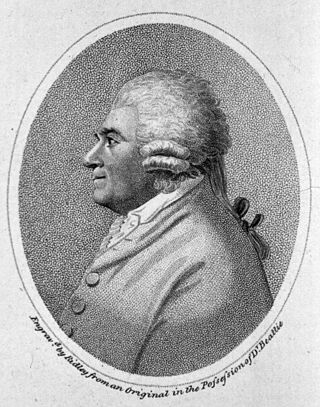
James Beattie was a Scottish poet, moralist, and philosopher.

Sir William Alexander Craigie was a philologist and a lexicographer.
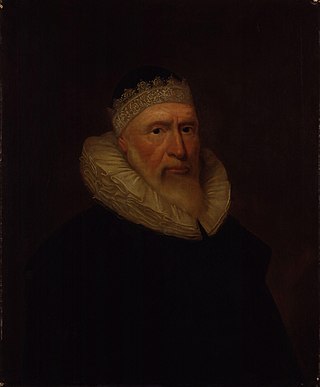
Sir Julius Caesar was an English lawyer, judge and politician who sat in the House of Commons at various times between 1589 and 1622. He was also known as Julius Adelmare.
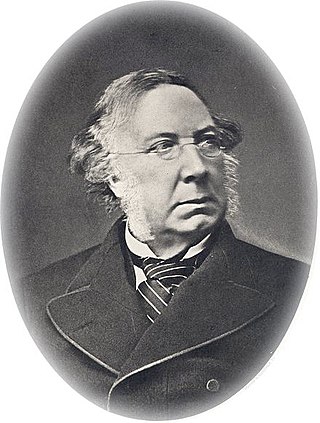
Henry Glassford Bell was a Scottish lawyer, poet and historian.
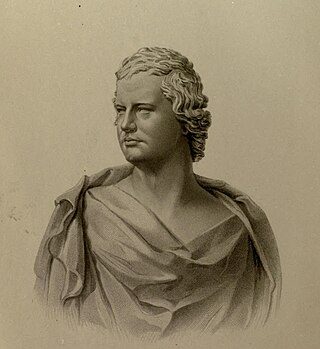
William Edmondstoune "W. E." Aytoun FRSE was a Scottish poet, lawyer by training, and professor of rhetoric and belles lettres at the University of Edinburgh. He published poetry, translation, prose fiction, criticism and satire and was a lifelong contributor to the Edinburgh literary periodical Blackwood's Magazine. He was also a collector of Scottish ballads.
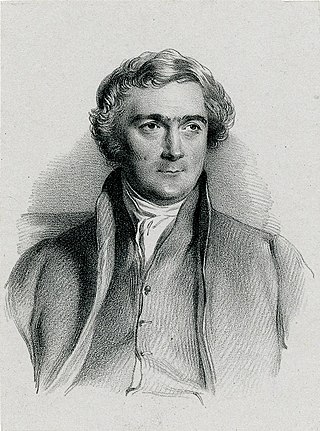
Joseph John Gurney was a banker in Norwich, England and a member of the Gurney family of that city. He became an evangelical minister of the Religious Society of Friends (Quakers), whose views and actions led, ultimately, to a schism among American Quakers.
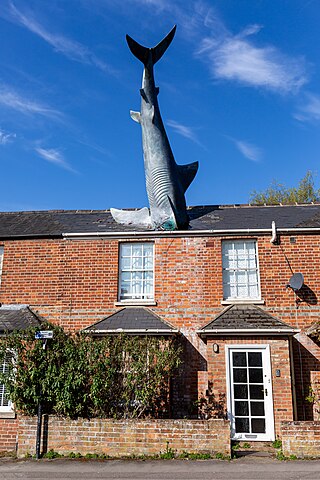
Headington is an eastern suburb of Oxford, in the county of Oxfordshire, England. It is at the top of Headington Hill overlooking the city in the Thames valley below, and bordering Marston to the north-west, Cowley to the south, and Barton and Risinghurst to the east. The life of the large residential area is centred upon London Road, the main road between London and Oxford.
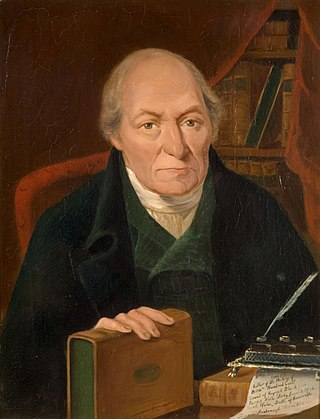
William Hutton was an English poet and historian. Originally from Derby, he moved to Birmingham and became the first significant historian of the city, publishing his History of Birmingham in 1781.
Nationality words link to articles with information on the nation's poetry or literature.
Nationality words link to articles with information on the nation's poetry or literature.

George Gordon Byron, 6th Baron Byron, was a British poet and peer. He is one of the major figures of the Romantic movement, and is regarded as being among the greatest of British poets. Among his best-known works are the lengthy narratives Don Juan and Childe Harold's Pilgrimage; many of his shorter lyrics in Hebrew Melodies also became popular.

Forest Hill is a village in the civil parish of Forest Hill with Shotover, in the South Oxfordshire district, in Oxfordshire, England, about 4.5 miles (7 km) east of Oxford. The village which is about 330 feet (100 m) above sea level is on the northeastern brow of a ridge of hills. The highest point of the ridge is Red Hill, which rises to 440 feet (130 m) just south of the village. The 2011 Census recorded Forest Hill with Shotover's population as 856.
Forest Hill with Shotover is a civil parish covering 7.56 km2 of South Oxfordshire approximately centred 3 miles (4.8 km) east of Oxford. Its population in 2011 was 856, almost exclusively in the villages of Forest Hill, hamlets of Shotover Cleve and Shotover Edge. It includes a country estate at Shotover Park. Forest Hill with Shotover was formed in 1881 by the merger of three smaller civil parishes: Forest Hill, Shotover and Shotover Hill Place.
Edgar Lobel was a Romanian-British classicist and papyrologist who is best known for his four decades overseeing the publication of the literary texts among the Oxyrhynchus Papyri and for his edition of Sappho and Alcaeus in collaboration with Denys Page. His contributions to the fields of papyrology and Greek studies were many and substantial, and Eric Gardner Turner believed that Lobel should "be acknowledged as a scholar to be mentioned in the same breath as Porson and Bentley, a towering genius of English scholarship."
Events from the year 1734 in Scotland.
William Julius Mickle was a Canadian-British medical doctor and medical superintendent of a mental asylum in the London Borough of Tower Hamlets. He is known for his 1880 book General Paralysis of the Insane with a 2nd edition in 1886.
